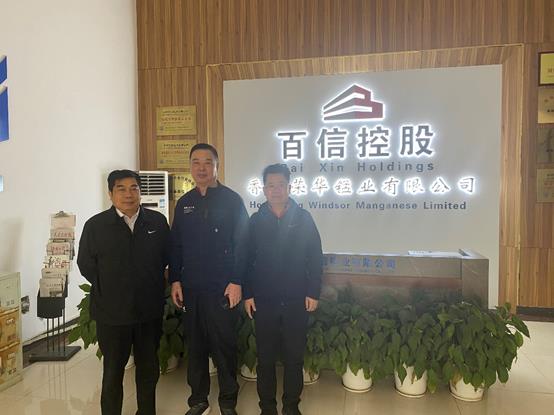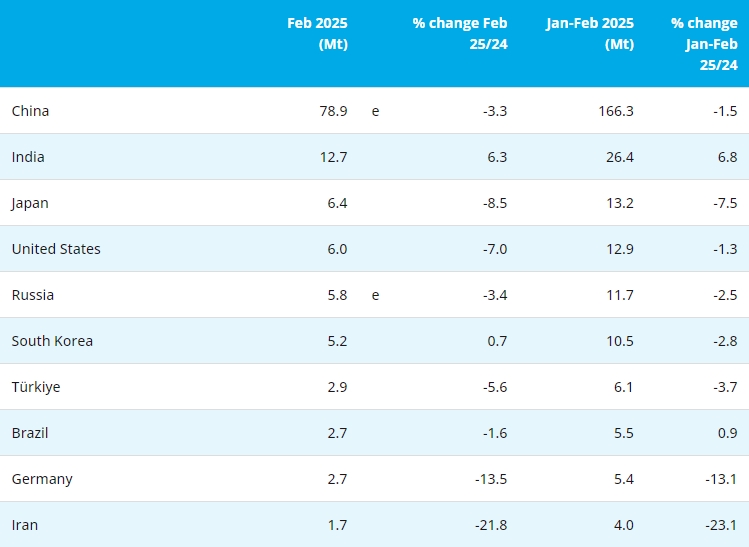[Ferro-Alloys.com]Over three years later, analysis, assessments and calls for removal or maintenance continue to pour in with respect to the former Trump administration’s Section 232 tariffs on steel and aluminum.
In 2018, former President Donald Trump used Section 232 of the Trade Expansion Act of 1962 to impose tariffs on steel and aluminum of 25% and 10%, respectively, citing national security concerns. The administration sought to boost domestic industry and bring capacity utilization rates up to around 80% (considered a barometer of industry health).
With respect to aluminum, the Economic Policy Institute (EPI), in a white paper released this week, argues for the success of the Section 232 aluminum duty.
Among its primary conclusions, the EPI white paper argues the 10% duty has led to job growth in the sector and increased production.Furthermore, the EPI argued US primary aluminum production increased on the heels of the Section 232 tariff.US primary aluminum production increased by 37.6% from March 2018-February 2020 compared with the previous two-year period, the EPI said.
“Domestic aluminum production reached 1.14 million metric tons at an annualized rate before the COVID-19 economic shock took hold, up from 741,000 metric tons in 2017,” the EPI noted.As such, the EPI emphasized its position that the tariffs should remain in place.
“Chronic global aluminum overcapacity risks the U.S. industry’s ability to maintain operations, grow, and invest in areas essential to national security and broader economic welfare,” said Robert E. Scott, EPI senior economist and director of trade and manufacturing policy research, who co-authored the report. “Maintaining the Section 232 aluminum import measures remains critical to stabilizing and expanding U.S. aluminum production.”
As we noted previously, the US and the European Union recently announced a new round of discussions aimed at tackling global steel and aluminum overcapacity. Per a joint statement, they said they aim to find solutions to address the challenges by the end of the year.
While there might not be as much argument that the tariffs have accomplished their primary objective, opinions differ when considering their impact on downstream consumers.The EPI argued the tariffs have had not had an adverse effect on downstream consumers.
“Econometric analysis of the causal relationship between primary aluminum prices and prices of aluminum-consuming end-use goods—including canned beer and other beverages, construction goods, furniture, and motor vehicle bodies—shows the effects are statistically zero to economically trivial,” the EPI said in its report. “The lack of a meaningful causal relationship indicates Section 232 import measures had no adverse effect on downstream industries or consumers.”
However, downstream consumers have argued otherwise.In a letter to President Joe Biden earlier this month, hundreds of companies called on the president to cancel the tariffs.
“The temporary increase of 4,800 steel industry jobs in the United States since 2018 recorded by the Bureau of Labor Statistics is not directly attributable to the Section 232 tariffs and is dwarfed by the 6.2 million American manufacturing jobs at risk in steel- and aluminum-using industries,” the letter reads. “It is businesses manufacturing in America such as ours who pay the tariffs on imports, and it is our businesses and employees who suffer when our product cannot compete with overseas manufacturers because the U.S. is an island of high steel and aluminum prices. On some products, American businesses pay 40 percent more for similar steel compared to their European counterparts — an unsustainable situation for any U.S. employer.”
MetalMiner’s Stuart Burns delved into the Section 232 tariffs, noting that they’re likely not going anywhere.Early on, President Joe Biden offered an indication on where his administration might stand on the Section 232 duties.On his last day in office, former President Donald Trump rescinded the 10% duty on aluminum imported from the United Arab Emirates. However, shortly after taking office, Biden reversed the decision.
source:MetalMiner
Copyright © 2013 Ferro-Alloys.Com. All Rights Reserved. Without permission, any unit and individual shall not copy or reprint!
- [Editor:李慧]



 Save
Save Print
Print Daily News
Daily News Research
Research Magazine
Magazine Company Database
Company Database Customized Database
Customized Database Conferences
Conferences Advertisement
Advertisement Trade
Trade








 Online inquiry
Online inquiry Contact
Contact

Tell Us What You Think